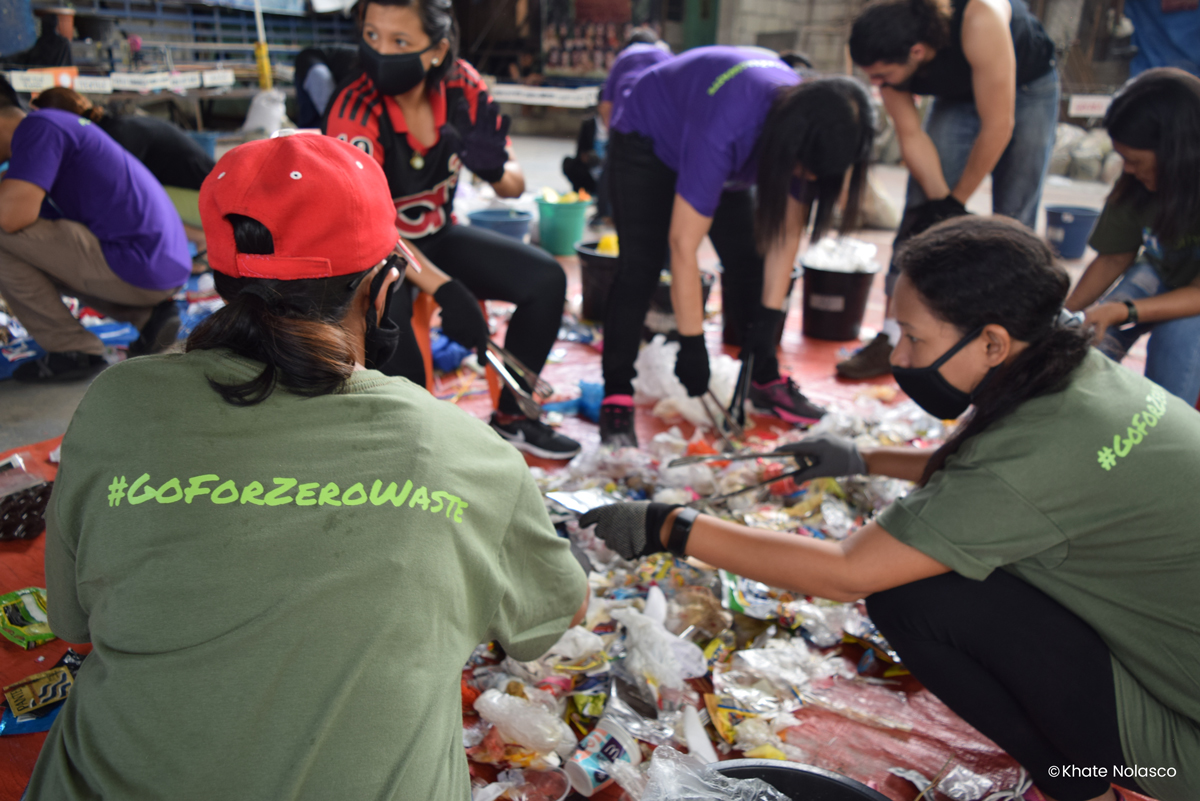The proclamation defined “zero waste” as “an advocacy that promotes designing and managing products and processes to systematically avoid and eliminate the volume and toxicity of waste and materials, and to conserve and recover all resources, and not indiscriminately dispose or burn them.”
Even before the issuance of the proclamation, various nongovernmental organizations in the Philippines have been trying to mainstream zero waste as a goal for our government. In fact, PP 760 traces its roots to the first-ever Zero Waste Youth Convergence organized by Mother Earth Foundation, in which 5,000 youth leaders issued a Zero Waste Youth statement calling for the celebration of a Zero Waste Month.
January was chosen as Zero Waste Month because this was the month when Republic Act No. 9003, or the Ecological Solid Waste Management Act of 2000, got signed. Many countries around the world have expressed admiration for this landmark Philippine law, as it calls for a decentralized waste and resource management system that also bans waste incinerators.
According to the National Solid Waste Commission, waste in Philippine cities and municipalities is mostly composed of organics (52 percent). Recyclables comprise 28 percent, and residuals (waste that can’t be reused, recycled or composted) 18 percent. Much of the waste (80 percent, which is organics and recyclables combined) can be safely returned to nature or industry without resorting to landfills and incineration.
Through proper segregation, organics can be composted in our homes, schools and offices. In a linear waste management approach, organics are wasted instead of being turned into a resource. Under a zero-waste approach, recyclables are reused and recycled and become a source of livelihood for waste workers as well.
Various cities and towns in the Philippines have shown leadership in implementing the law, hoping to transform into a zero-waste city. A good model is San Fernando, Pampanga, which achieved a 78-percent waste diversion record (or the amount that was composted or recycled instead of going into the landfill) in 2017, from 12 percent in 2012. Tacloban City was also able to increase the coverage of waste collection but managed to decrease the volume of waste sent into landfills.
However, the work does not end at the local government unit (LGU) level. Many LGUs that have already been implementing zero-waste policies need strong support from national government agencies and legislators. They have the power to enable an environment that supports these policies by enacting laws and supporting the implementation of such laws that can scale up the successes of LGUs doing the zero-waste approach.
For instance, cities like San Fernando, Pampanga, that are trying to reduce nonrecyclable plastic waste through local ordinances cannot implement zero waste effectively unless there is a law at the national level to mandate businesses to stop the production of single-use disposable plastic packaging. Having a national law will ensure that materials such as disposable implements or throwaway sachet packaging are not produced in the first place. Thus, it removes the burden from LGUs to have to manage plastic waste that can neither be recycled nor composted.
With strong political will and robust policies in place, government leaders and an engaged citizenry can transform the Philippines into a zero-waste country. The coming midterm elections is an opportune time to ensure that we are on the right track.
* * *
Froilan Grate is the regional coordinator of the Global Alliance for Incinerator Alternatives Asia-Pacific. Jed Alegado is the communications officer for Asia-Pacific of #breakfreefromplastic. This article was originally posted in Inquirer.




